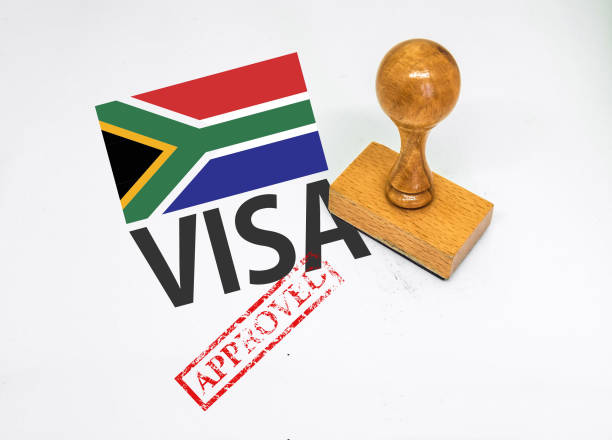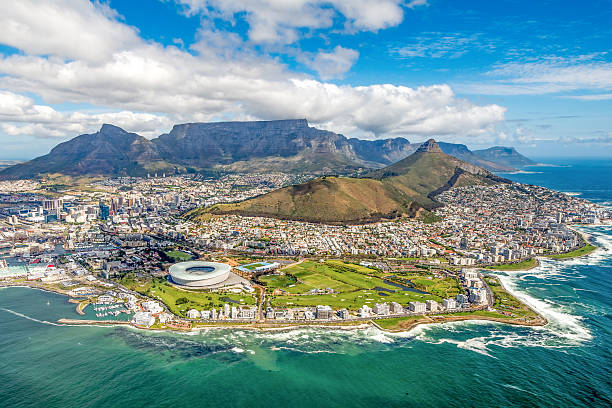
Getting a South Africa visitor visa is like unlocking the door to explore the vibrant landscapes, diverse cultures, and breathtaking wildlife of this beautiful country. But before you pack your bags, you need to know what’s involved. Think of the visitor visa as your entry ticket. It’s a document that the South African authorities give you, allowing you to enter, stay for a while, and then leave. You’ll need this visa if you’re not from a visa-exempt country. The process might seem like a hurdle, but it’s pretty straightforward once you get the hang of it. This visa typically lets you enjoy tourist activities, visit family and friends, or attend business meetings. Remember, it’s not a free pass to work or live there long-term. So, if South Africa’s on your bucket list, getting this visitor visa is your first step to an unforgettable adventure.

Eligibility Criteria for South Africa Visitor Visa
To get your hands on a South Africa visitor visa, you need to check if you tick all the boxes on their list. First off, you must have a valid passport. And by valid, we mean it should stay valid for at least 30 days after your trip ends. Plus, it needs at least two blank pages for the visa stamps. Next, you gotta prove you won’t just disappear into South Africa. This means showing you’ve got enough money to cover your stay and a return or onward ticket. They also ask for a yellow fever certificate if you’re coming from a risk area. Not to forget, your paperwork should include where you plan to stay, like a hotel booking or a letter if you’re crashing at a friend’s. And, if you’re visiting someone, that someone needs to confirm it with a letter. Lastly, they might ask you to prove you have no criminal intentions, so a clean police record could be necessary. Keep it straight, have your documents ready, and you’re all set to apply.
Essential Documents for South Africa Visitor Visa Application
To apply for a South Africa Visitor Visa, you need to gather specific documents. First up, have your passport ready; it must be valid for at least 30 days after your planned trip. You’ll also need two passport-sized photographs that follow the visa photo requirements. Don’t forget a detailed travel itinerary; this includes flight bookings and hotel reservations to show you have a plan. Proof of financial means is crucial; bank statements from the last three months will do to show you can support yourself during your stay. If you’re staying with someone, a letter of invitation from them along with their ID or residence permit can strengthen your application. For those with kids, children’s birth certificates and parental consent affidavits are a must if traveling alone with the child. Finally, a yellow fever vaccination certificate is required if you’re coming from or transited through a yellow fever belt country. Each document plays its part in paving your way to South Africa.
Application Process for the South Africa Visitor Visa
Applying for a South Africa visitor visa isn’t as daunting as it might seem. Start by filling out the visa application form correctly. You’ll find it online, but ensure you’re on the official Department of Home Affairs website. Mistakes on your form? They can delay your application, so be thorough. Next, you need to gather your support documents. These typically include your passport (valid for six months beyond your stay), proof of a hotel booking or a letter from your host in South Africa, a return flight ticket, and proof you can support yourself financially during your stay. Don’t forget, you’ll also need a bank statement to show you have enough money. Once you have all your documents, it’s time to pay the visa fee. The cost can vary, so check the latest fees on the official website. Last step? Submit your application and documents to the nearest South African consulate or embassy. Some places might let you mail them in, but others might require an in-person visit. Get ready to wait; processing times can vary. Staying patient and organized is key to a smooth application process.
Financial Requirements for Visitors
For a trip to South Africa, showing you can financially support yourself is a must. This means proving you have enough money for your stay without needing to work there. The exact amount varies, but think about costs like hotels, meals, and moving around. You’ll also need a return ticket or enough to buy one. Banks statements often serve as proof. If someone in South Africa is hosting you, they can also show they can support you during your visit. Keep it simple, but make sure your documents are clear and up to date.
Health and Safety Regulations: Vaccinations and Insurance
Before you pack your bags for South Africa, you’ve got to sort out some health and safety details. First up, vaccinations. Depending on where you’re coming from, South Africa might ask you to show proof that you’ve been vaccinated for Yellow Fever. If you’re coming from a place where this disease is a risk, this is a must. Other vaccinations, like Hepatitis A and Typhoid, are not mandatory but are pretty smart to have. These diseases are still around in some parts of South Africa, so better safe than sorry, right?
Now, let’s talk about health insurance. South Africa’s healthcare system is a mix of public and private. If you end up needing care, know that the private hospitals will hit your wallet hard without insurance. So, you should get travel health insurance that covers your stay in South Africa. This isn’t just a good idea; it’s your financial safety net. Make sure your insurance policy covers medical evacuation too. If you get seriously ill, you might need to be flown back home fast, and that’s seriously expensive without the right insurance cover.
So, remember, get vaccinated, and don’t skimp on health insurance. These steps are not just about ticking boxes for your visa; they’re about making sure you enjoy your visit without unwelcome dramas.
Duration and Validity of the South Africa Visitor Visa
When you get a South Africa visitor visa, it usually comes with a sticker in your passport. This sticker tells you how long you can stay. Most times, this visa lets you visit South Africa for up to 90 days or about three months. But, not everyone gets the same time. Some people might get a visa that lasts less or even more, depending on why they’re visiting. The important thing to remember is this visa has an expiration date. It’s like a ticket with a time limit. Before planning your flight back home or your next move, always check when your visa expires. If you stay longer than your visa allows, you could run into trouble, like fines or not being allowed to come back for a while. Always make sure your stay matches what your visa says.
Tips to Ensure a Successful Visa Application
To make your South Africa visitor visa application smooth and successful, follow these straightforward tips. First, double-check your documents. Make sure you have all the required paperwork, such as a valid passport, proof of sufficient funds, return flight ticket, and accommodation bookings. These documents prove that you can support yourself during your stay and intend to leave South Africa after your visit. Next, apply well in advance. Visa processing times can vary, and you don’t want to be caught off-guard by delays. Starting early gives you a buffer in case there are any unforeseen issues. Another critical tip is to provide clear and honest information. Any inconsistencies or falsehoods in your application can lead to a denial. If you have a complex travel history or purpose, consider attaching a cover letter to explain your situation better. Lastly, check your public record and social media. Sometimes, officers check these as part of their assessment. Ensure there’s nothing that could potentially harm your application. By adhering to these simple, yet effective tips, you’re on the right path to securing your visa without unnecessary stress.
Common Reasons for Visa Rejection and How to Avoid Them
When applying for a South Africa Visitor Visa, getting it right the first time saves a lot of hassle. Many people get their visa application rejected, but knowing the common pitfalls can boost your chances of success. First, incorrect or incomplete forms are a big no. Double-check every detail before submission. Second, lack of sufficient funds can lead to a denial. You need to prove you can support yourself during your stay, so ensure your bank statements are in order. Third, unclear travel itinerary. Authorities want to know your plans; vague answers don’t cut it. Provide clear, detailed travel and accommodation plans. Fourth, missing documents. Every required document is crucial. A missing page can derail your entire application. Lastly, past criminal records or overstaying a previous visa can make officials wary. If applicable, address these concerns transparently in your application. Avoiding these common mistakes can significantly improve your chances of dancing under the South African sun instead of dealing with visa woes.
Final Checklist Before Submitting Your South Africa Visitor Visa Application
Before you send off your South Africa visitor visa application, pause a moment. It’s crucial to make sure you haven’t missed anything. Here’s a straightforward checklist to run through:
- Passport: Got your passport ready? Make sure it has at least two blank pages for stamps and is valid for no less than 30 days beyond your intended stay.
- Application Form: The application form should be filled out completely. No blank spots unless they truly don’t apply to you.
- Photos: Include two recent passport-sized photographs that meet the visa requirements.
- Flight Details: Show your round-trip flight booking. This tells officials when you plan to enter and leave South Africa.
- Accommodation Proof: Be it a hotel booking or a letter from a friend or family member you’re staying with, have that ready.
- Financial Means: Prove you have enough money for your stay. Bank statements usually do the trick.
- Yellow Fever Vaccination Certificate: Needed if you’re coming from or transited through a yellow fever zone.
- Fee Payment: Double-check you’ve paid the correct visa application fee. Without it, your application won’t be looked at.
And there you have it. This list isn’t exhaustive but covers the basics. Mistakes or missing documents can lead to delays or even a rejection. Take a moment, check everything off this list, and you’ll be all set for your visa application. Safe travels!
Leave a Reply